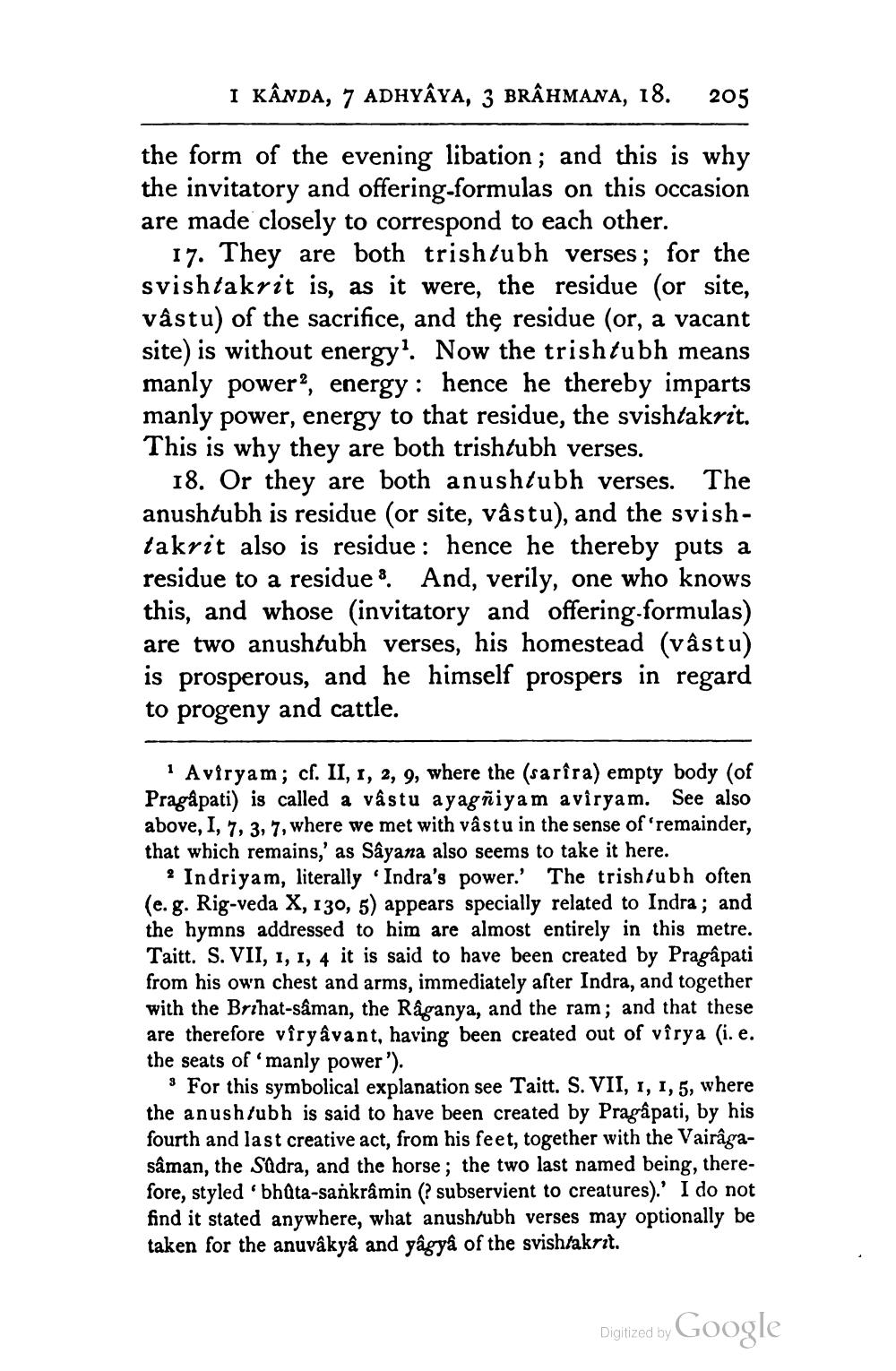________________
I KÂNDA, 7 ADHYAYA, 3 BRÂHMANA, 18.
205
the form of the evening libation; and this is why the invitatory and offering-formulas on this occasion are made closely to correspond to each other.
17. They are both trishtubh verses; for the svishtakrit is, as it were, the residue (or site, vastu) of the sacrifice, and the residue (or, a vacant site) is without energy? Now the trishtubh means manly power?, energy: hence he thereby imparts manly power, energy to that residue, the svishtakrit. This is why they are both trishtubh verses.
18. Or they are both anushtubh verses. The anushtubh is residue (or site, vâstu), and the svishtakrit also is residue: hence he thereby puts a residue to a residue 8. And, verily, one who knows this, and whose invitatory and offering formulas) are two anushtubh verses, his homestead (vâstu) is prosperous, and he himself prospers in regard to progeny and cattle.
1 Aviryam; cf. II, 1, 2, 9, where the (sarîra) empty body (of Pragapati) is called a vastu ayagñiyam a viryam. See also above, I, 7, 3, 7, where we met with vâstu in the sense of ‘remainder, that which remains,' as Sâyana also seems to take it here.
? Indriyam, literally Indra's power.' The trishtubh often (e. g. Rig-veda X, 130, 5) appears specially related to Indra; and the hymns addressed to him are almost entirely in this metre. Taitt. S. VII, 1, 1, 4 it is said to have been created by Pragâpati from his own chest and arms, immediately after Indra, and together with the Brihat-saman, the Råganya, and the ram; and that these are therefore vîryavant, having been created out of vîrya (i. e. the seats of manly power').
s For this symbolical explanation see Taitt. S. VII, 1, 1, 5, where the anush/ubh is said to have been created by Pragâpati, by his fourth and last creative act, from his feet, together with the Vairâgasaman, the Sadra, and the horse; the two last named being, therefore, styled ' bhàta-sankrâmin (? subservient to creatures).' I do not find it stated anywhere, what anush/ubh verses may optionally be taken for the anuvâkyâ and yagya of the svishtakrit.
Digitized by Google




